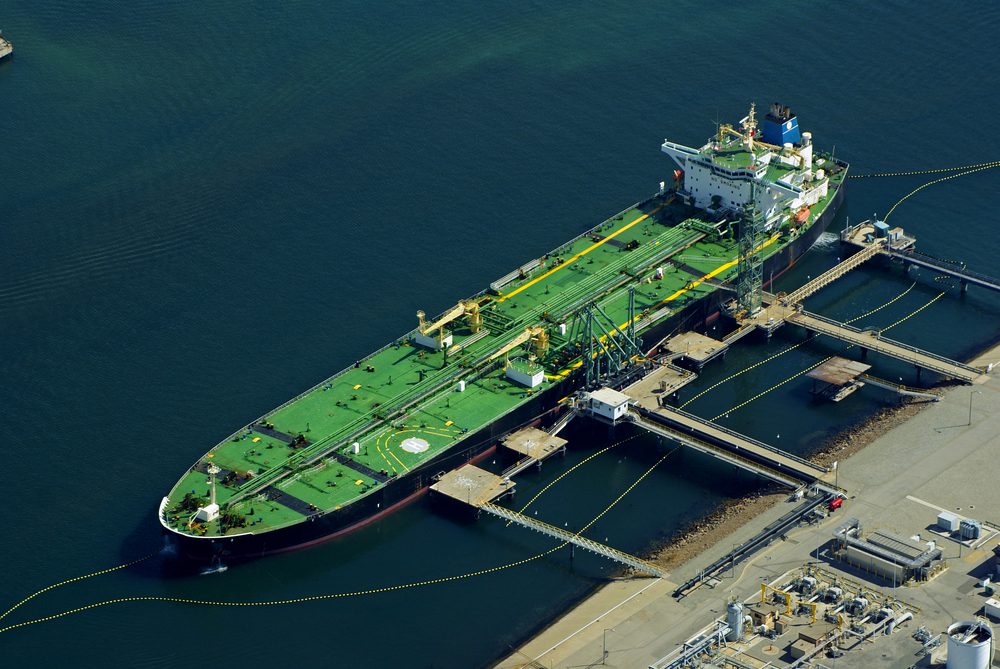By R Rusak / Shutterstock
By Alex Nussbaum (Bloomberg) –Oil rocketed to its biggest weekly gain in more than two years as U.S. President Donald Trump’s aborted air strikes against Iran left Middle East tensions simmering with the endgame uncertain.
Crude futures rose in New York on Friday to complete a 9.4% rally for the week. Trump tweeted that he called off raids because of concern the death toll wouldn’t have been “proportionate” to Iran’s downing of an American spy drone earlier this week. Trump said he was in “no hurry” to respond, despite a series of provocations in the oil-rich region.
The canceled attack sent a “very confusing” message, Daniel Yergin, an oil historian and vice-chairman at IHS Markit Ltd., said in a Bloomberg TV interview. “The fear is that this could pretty quickly escalate. There’s plenty of room for accident, misunderstanding, future incidents. The Iranians are in a corner.”
West Texas Intermediate for August delivery closed 36 cents higher on Friday at $57.43 a barrel on the New York Mercantile Exchange. The U.S. benchmark notched its biggest weekly increase since December 2016. Brent for August settlement rose 75 cents to $65.20 on London’s ICE Futures Europe Exchange.
Gasoline futures, meanwhile, jumped 3.9% as a fire raged at the biggest refinery on the U.S. East Coast.
Hostilities have been mounting in the Persian Gulf region, source of one third of the world’s oil, with the drone incident, missile strikes on Saudi Arabia and an attack on tankers near the Strait of Hormuz. On Thursday, a rocket exploded near an Exxon Mobil Corp. workers’ camp in Iraq.
An American attack on Iranian targets, which would have included air strikes, was close to being carried out when it was halted, according to a U.S. administration official who was granted anonymity to discuss a national security matter. The official wouldn’t discuss whether the plan might be revived.
Despite crude’s recent rally, a prolonged U.S.-China trade war has dented the demand outlook. Washington and Beijing are set to resume talks next week, providing a glimmer of hope for the global economy. But investors want a resolution to the dispute, not merely more talks, said IHS’s Yergin.
“The market is poised between where it was before, which was just gloom” and “the possibility that demand will spike up because there will be some kind of settlement with China,” he said. “If there isn’t, there will be real disappointment and that will certainly show up in the oil price.”
Near-record U.S. crude production, meanwhile, is also weighing on prices. If tensions in the Mideast subside, Brent could slide back toward $60 a barrel, Carolyn Kissane, a professor at New York University’s Center for Global Affairs, said in an interview.
“I don’t see us moving into a higher-price environment without something much more significant happening to the supply outlook,” she said.
–With assistance from Sharon Cho, Grant Smith and Alix Steel.
© 2019 Bloomberg L.P

 Join The Club
Join The Club











